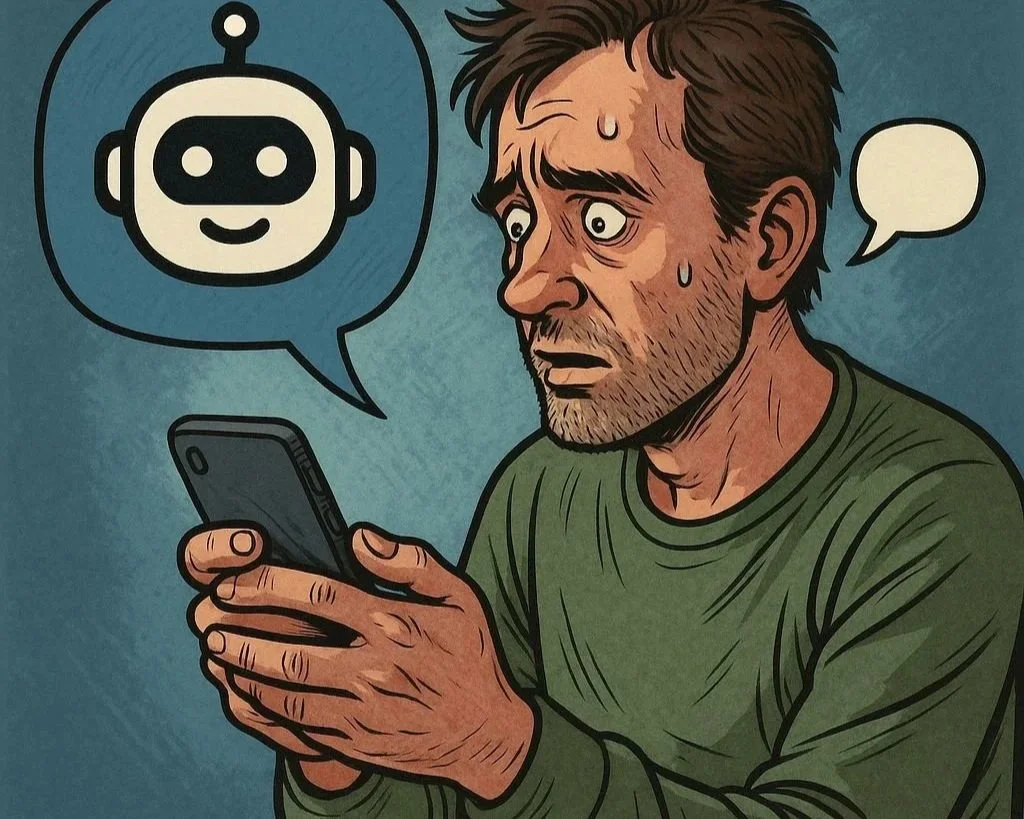AI Psychosis: When the Bot Talks Back (Too Much) 🤖💀
When your chatbot becomes your therapist, priest, and best friend… all at once.🚨
The rise of AI psychosis!
There’s a new phrase floating around tech and mental health circles: AI psychosis. No, it’s not your chatbot losing its marbles — it’s us.
The idea is simple (and a little unsettling): some people are spending hours, even days, in intense conversations with AI. The results? Delusions, romantic attachments, even spiritual revelations about their chatbot. One man claimed ChatGPT nearly convinced him he could fly if he truly believed it. (Thankfully, gravity still works.)😜
Microsoft AI chief Mustafa Suleyman recently warned that these kinds of systems can disconnect people from reality if we start treating them as conscious beings. When the tool starts feeling like a companion, the line between reality and illusion blurs — and that’s where things get risky.
Skeptics argue this is just another “moral panic,” like the early days of social media. But psychiatrists are already seeing real patients whose mental health spiraled after obsessive AI use. Companies are scrambling to add guardrails, and regulators are paying attention.
So the big question isn’t just whether AI needs limits — but whether we, the users, need to rethink our habits. After all, if you’re talking more to your chatbot than your best friend, maybe the psychosis isn’t artificial. 😉
What do you think: should we rely on tech companies to set the guardrails, or is it on us to draw the line?
To illustrate my point - this post partly stitched together is AI 😜🤖💀
Comments welcomed, as always…
MC

